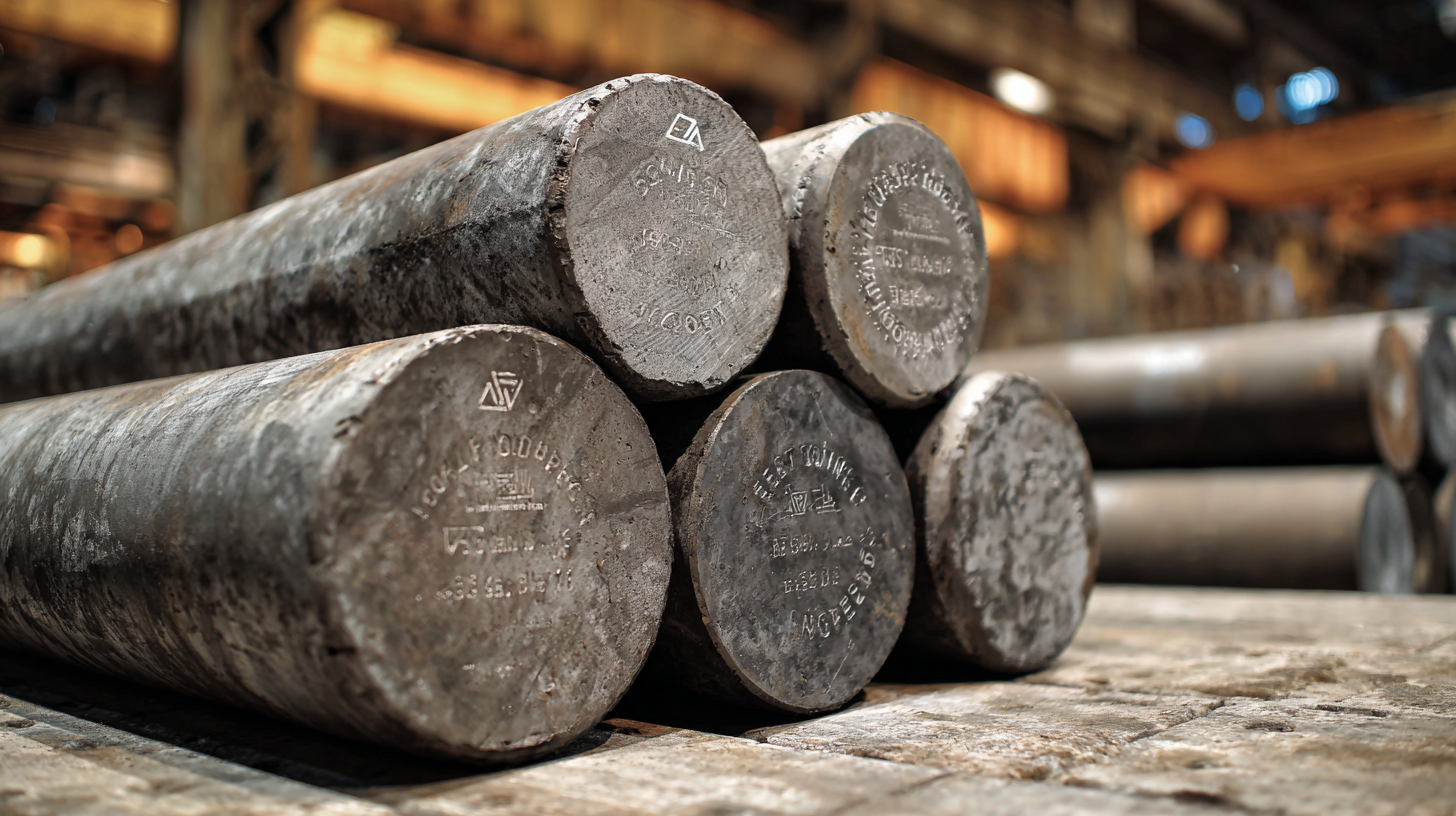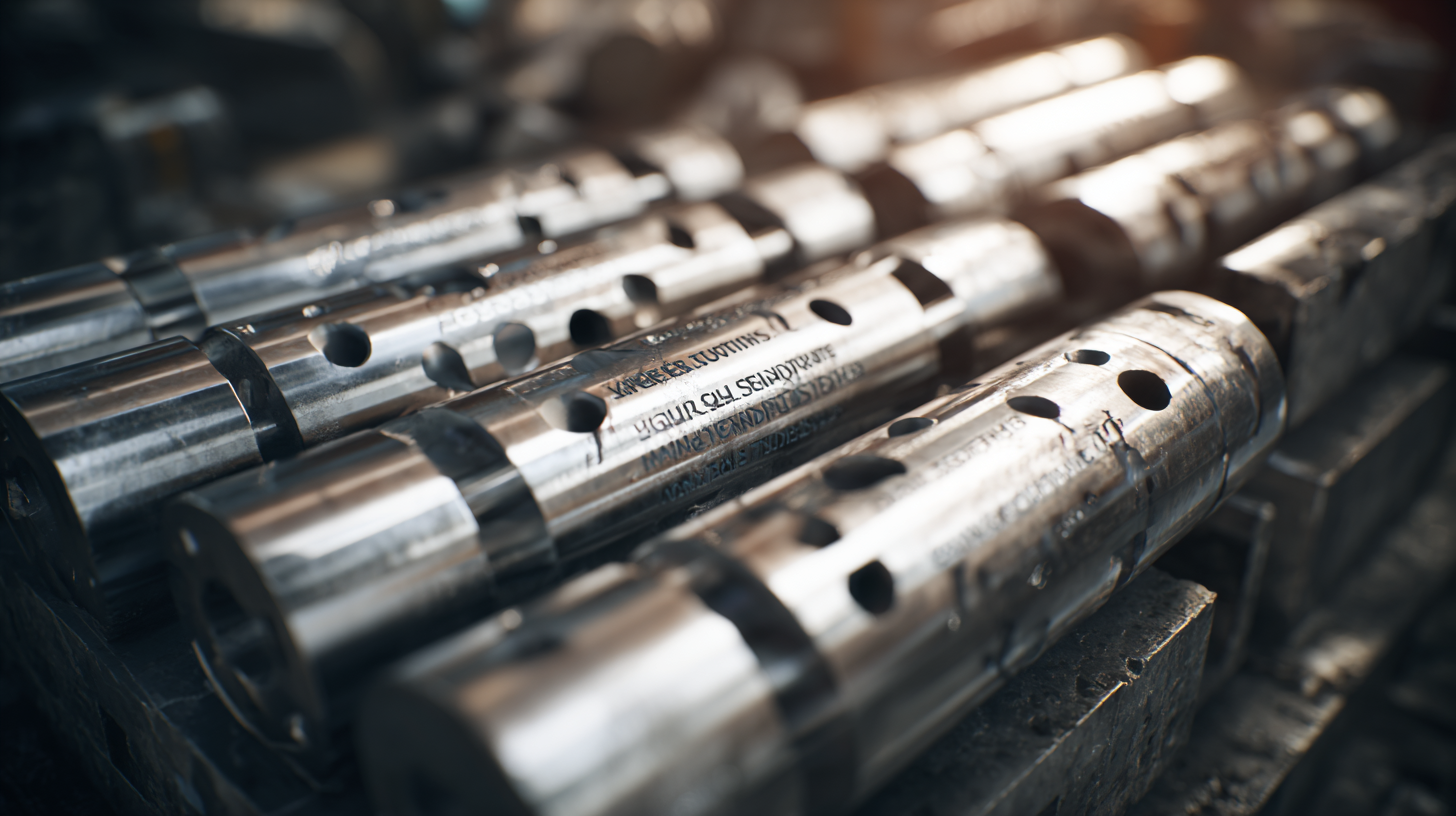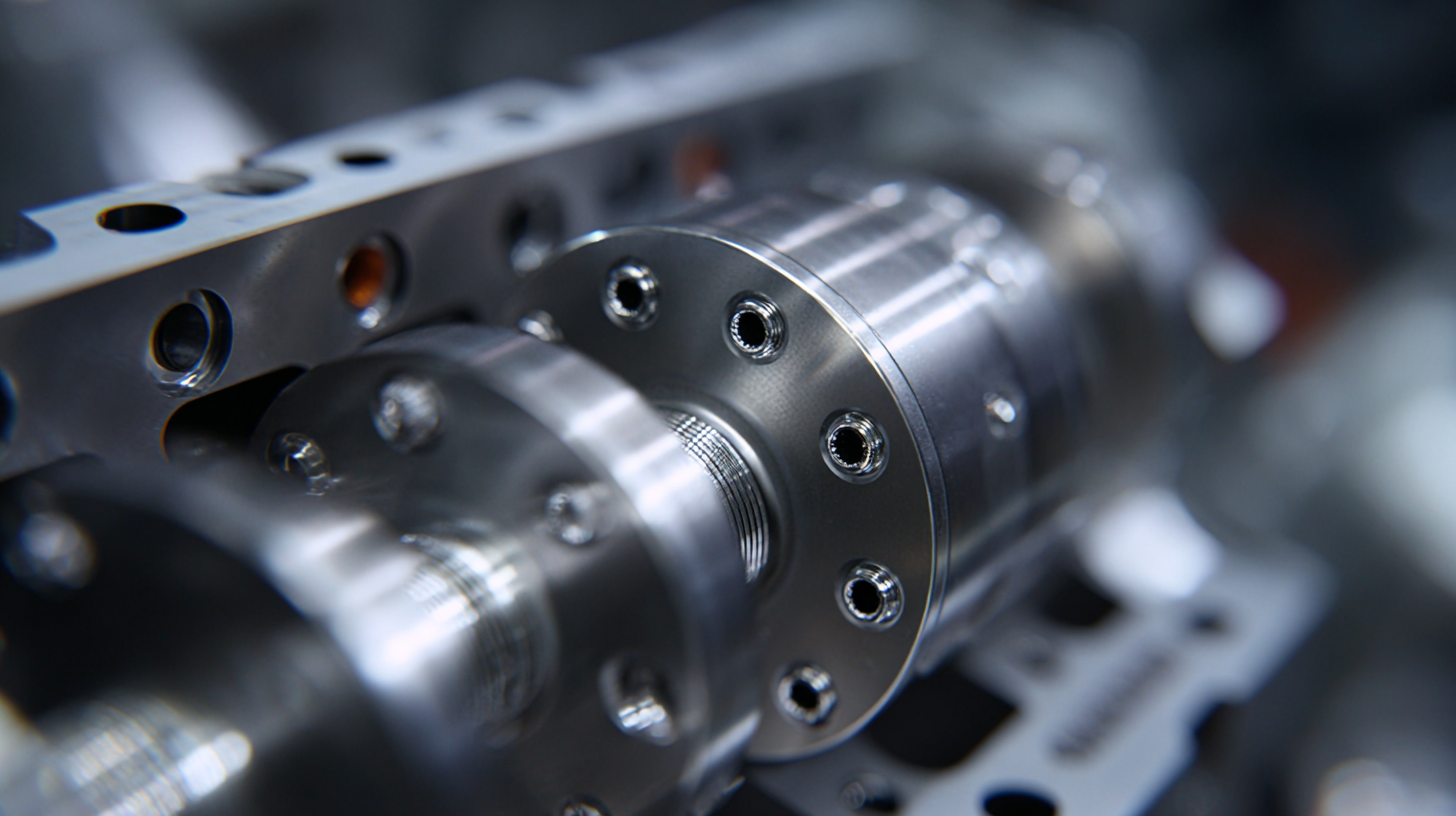Leave Your Message
-
Phone
-
E-mail
As industries increasingly grapple with the urgent need for sustainability, the spotlight has turned towards innovative manufacturing practices that minimize environmental impact while maximizing efficiency. Among the pivotal advancements in this realm are forged cylinders, which are known for their robust performance and durability. However, the future of forged cylinders is not solely about their mechanical properties; it is also intrinsically linked to sustainable manufacturing practices that prioritize eco-friendliness and resource conservation. This blog will explore the evolving landscape of forged cylinders in the context of sustainable development, examining how technological advancements, material selection, and production methods can harmonize the demands of performance with the principles of sustainability. By understanding these trends, manufacturers can not only enhance the quality and longevity of their products but also contribute meaningfully to a greener future.

As industries worldwide strive to achieve sustainability, forged cylinders are emerging as key players in enhancing energy efficiency in manufacturing. These components offer superior strength and durability compared to their cast or machined counterparts, often leading to lightweight designs that require less energy during operation. According to a study by the International Energy Agency (IEA), implementing forged components in industrial machinery can reduce energy consumption by up to 20%, directly impacting production costs and carbon footprints.

Additionally, the adoption of advanced forging techniques, such as closed-die forging, has been linked to improved material usage. A report by ASTM International highlighted that these practices can lead to over 80% material yield compared to traditional methods, minimizing waste and supporting circular economy initiatives. Manufacturers incorporating forged cylinders not only achieve greater operational efficiency but also align with rigorous environmental standards, positioning themselves as leaders in sustainable practices.
Tip: To maximize the benefits of forged cylinders, consider integrating them with energy-efficient drives and automation systems. This combination can further optimize performance and reduce operating costs. This approach not only promotes sustainability but also enhances overall productivity, demonstrating that investment in quality components pays dividends in the long term.
The advancement of material technology is driving sustainability in the forged cylinder industry, which is a critical component in various industrial applications. According to a report by MarketsandMarkets, the global market for forged steel components is projected to reach $123.1 billion by 2025, a testament to the growing demand for high-performance materials. Innovations such as micro-alloyed steels and advanced titanium alloys are being developed to enhance performance while reducing environmental impact. These materials not only improve the mechanical properties of forged cylinders but also minimize scrap rates during production.
Furthermore, the adoption of eco-friendly manufacturing practices is gaining momentum. The Carbon Trust indicates that integrating sustainable practices in the forging process can reduce emissions by up to 30%. Techniques like regenerative heating and the use of renewable energy sources are becoming more prevalent, leading to a significant reduction in carbon footprints. As manufacturers focus on lifecycle assessment and eco-design principles, the future of forged cylinders appears promising, with an emphasis on both performance and environmental stewardship. This paradigm shift is not merely a response to regulatory pressures but is also driven by consumer demand for sustainable products in an increasingly eco-conscious market.
| Material Type | Carbon Footprint (kg CO2e/kg) | Recyclability (%) | Energy Consumption (MJ/kg) | Durability (Years) |
|---|---|---|---|---|
| Alloy Steel | 3.5 | 90 | 20 | 15 |
| Titanium Alloys | 4.0 | 95 | 25 | 20 |
| Aluminum Alloys | 2.0 | 100 | 15 | 10 |
| High Strength Steels | 3.0 | 85 | 18 | 12 |
| Composite Materials | 5.0 | 80 | 30 | 25 |
The life cycle assessment (LCA) of forged cylinders plays a critical role in understanding and reducing the carbon footprint associated with their production. This comprehensive evaluation method allows manufacturers to scrutinize each phase of the product's life, from raw material extraction through to production, use, and eventual disposal or recycling. By identifying hotspots where carbon emissions are most significant, manufacturers can implement targeted strategies to minimize their environmental impact.
In the realm of sustainable manufacturing practices, adopting LCA offers multiple benefits. It encourages the use of eco-friendly materials and energy-efficient processes, leading to lower emissions and resource consumption. Moreover, by analyzing the entire lifecycle, companies can innovate their production techniques—for instance, optimizing forging processes or integrating renewable energy sources—thus enhancing sustainability. The findings from LCA can also guide manufacturers in adhering to growing environmental regulations and responding to market demands for greener products, ultimately contributing to a more sustainable future in the forged cylinder industry.
The implementation of sustainable forged cylinders is gaining traction in various industries, showcasing innovative approaches to manufacturing that reduce environmental impact. A recent report by the World Economic Forum highlights that incorporating sustainable practices in manufacturing could cut carbon emissions by up to 70% by 2030. Case studies from leading manufacturers illustrate successful transitions to greener processes. For instance, a major automotive company reported a 30% reduction in energy consumption after switching to eco-friendly forging techniques.
In another example, a prominent aerospace manufacturer adopted water-based lubricants in their forging processes, significantly lowering the release of volatile organic compounds (VOCs). This shift not only improved their sustainability metrics but also enhanced overall worker safety. Such industry strides underscore the potential for businesses to thrive while minimizing their ecological footprint.
**Tips for Implementation:** Start by assessing your current processes for energy and material efficiency. Engage stakeholders in adopting sustainable practices and invest in technologies that promote waste reduction. Moreover, considering partnerships with suppliers who prioritize sustainability can amplify your impact and help in achieving shared environmental objectives.

The integration of automation and artificial intelligence (AI) in forged cylinder manufacturing is set to revolutionize sustainable practices in the industry. As manufacturers strive for greater efficiency and reduced waste, these technologies play a pivotal role. Automated systems can optimize production workflows, minimizing downtime and energy consumption. By employing AI algorithms, companies can better predict maintenance needs and adjust processes in real-time, leading to less material waste and improved product quality.
Furthermore, the shift toward sustainable practices goes beyond just efficiency; it encompasses the entire lifecycle of the manufactured products. AI can analyze data on resource usage, emissions, and recycling potential, enabling manufacturers to adopt circular economy principles. This ensures that forged cylinders are not only produced with lower environmental impact but also designed for longevity and recyclability. As the industry embraces these advancements, the focus on sustainability will likely redefine competitive advantages, making companies that prioritize innovation in automation and AI leaders in the future of forged cylinder manufacturing.
